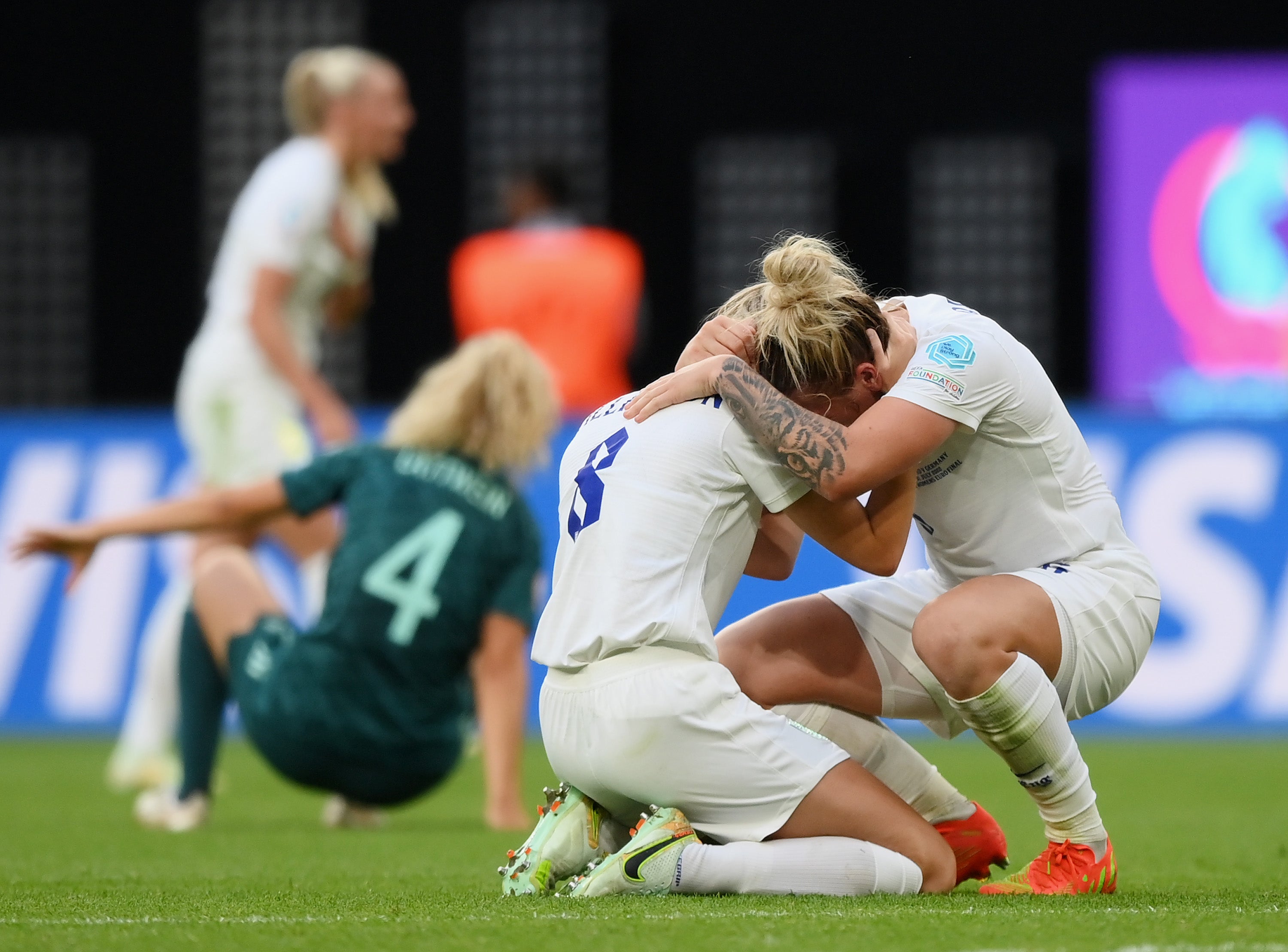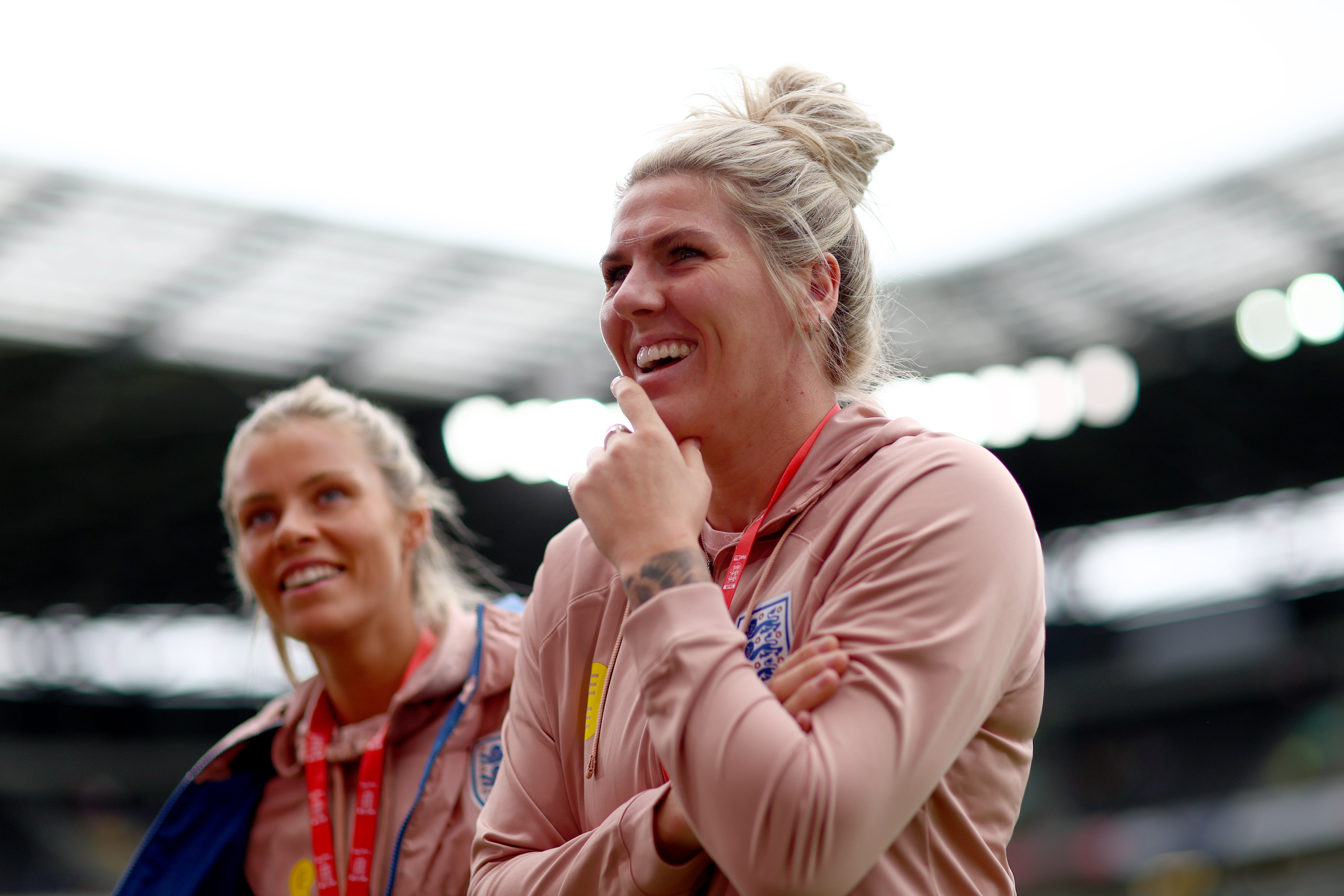‘A natural leader’: How Millie Bright became England’s ‘voice’ for the Women’s World Cup
Bright will replace the injured Leah Williamson in captaining the Lionesses this summer and will lead the team in her own way
“Straight away I was just in shock,” Millie Bright remembers. It was a Wednesday evening in late April when England’s road to the World Cup hit a major bump, as Leah Williamson collapsed over her right knee and hobbled down the tunnel at Leigh Sports Village. The news then confirmed what was initially feared: with two months to go until the Women’s World Cup, England’s captain was out having suffered a ruptured anterior cruciate ligament injury.
It left the Lionesses needing a new leader. “I don’t think the captaincy crossed my mind at all, hand on heart,” says Bright. After such a severe injury, the defender’s thoughts instead turned to her centre-back partner at last summer’s Euros, but the confirmation soon followed: with Williamson out, Bright will captain England at this summer’s World Cup in Australia and New Zealand. “There aren’t enough words,” she says. “It’s a massive honour.”
Williamson’s absence leaves a hole in the team that will be impossible to replace, both on and off the pitch. The 26-year-old brought clarity to England’s message during the Euros, in her understanding of the team’s wider role and what they were playing for. Wiliamson was not just a captain but an ambassador for the Lionesses, and the strength of her words during the tournament played a major role in the team captivating the country and securing a legacy.
Bright will miss Williamson too. “We had a really good connection, we learned about each other in how we complement one another,” she says. But the Chelsea centre-back will also look to lead in her own way. “I’ve always been a big believer that you cannot put captains under the same umbrella,” she says. “Everyone has their different qualities. Everyone has their own way of doing it, that’s the beauty of the game with so many leaders in the group as it is.”
While Williamson brought calmness on the ball, Bright’s style on the pitch is one of an uncompromising, no-nonsense defender. But that should not diminish her quality: Bright offers a passing range as well as her physicality and strength in the air. Recognised as one of the best centre-backs in the world, she has been a key pillar of Chelsea’s dominance and a serial winner of domestic cups under Emma Hayes. A lover of horses, with her family owning a stable in South Yorkshire, the decision to swap equestrian for professional football at the age of 16 proved to be a wise one.
Off the pitch, and following the retirement of Jill Scott, Bright has assumed the role of the loudest presence in the dressing room alongside striker Rachel Daly. Bright carries a humble charisma. Her left forearm arm is covered with tattoos: with an owl to remind her of home and the stables, the eye of a tiger to resemble inner strength, and a dreamcatcher all prominent. On it, Bright is used to being part of winning teams and she has helped high standards at both club and country.

"She’s a natural leader,” says Bright’s Chelsea and England team-mate Niamh Charles. “She’ll drive the team on, for sure. For every leader, the best thing is for them to be themselves. Millie does a little less talking [than Williamson], but does her talking with her actions. They are both very good in their own way, when they have to speak they know exactly what to say to the players. Also the way they are on the pitch, they both lead by example.”
If the hot topic coming into the first 32-team World Cup is injuries and player burnout, Bright stands as an example. The 29-year-old will head into the tournament having not played a competitive match since March, when she suffered a knee injury playing for Chelsea in the Champions League that required surgery. She expects to be fit for England’s opener against Haiti on July 22 and believes the time away from the pitch could be a “blessing in disguise".
“I think the amount of minutes I’ve played leading up to this has been ridiculous, through the roof,” Bright says. “If anything I feel mentally and physically fresher than I’ve ever felt.”

But Bright is also aware of the role she will have in using her position to speak out about the controversial issue of scheduling in women’s football. Her World Cup dream could have been over too, had she been as unlucky as Williamson. “There is still work to be done,” she says. “Making sure we can compete in every competition and do back-to-back tournaments, but we are not robots, we need time to recover. It doesn’t matter what club you play for or country you represent, we care for the game and the next generation coming through.”
“The main thing is being our voice,” says Jess Carter, another of Bright’s Chelsea and England team-mates. “She’s someone who can be that bridge between staff, media, players.” But for the Lionesses, leadership won’t be down to just one person - that wasn’t the case with Williamson at the Euros last summer, either. “It’s a collective, it’s not just about Millie doing everything for us,” Carter adds. The culture Sarina Wiegman has created is why Bright is viewed as a natural leader who can step into Williamson’s shoes. “There’s not much she has to change,” Charles agrees.
Still, Bright’s world is about to change, following Williamson and England greats Steph Houghton, Casey Stoney and Faye White in leading the Lionesses at a major tournament, but with the difference that this is going to be the biggest Women’s World Cup yet. It could finish with Bright becoming the only England captain other than Sir Bobby Moore to lift the World Cup. “There was always going to be extra pressure after the Euros,” Bright says. “The quality has gone up, the expectation goes up. We now the challenge ahead will be bigger than any other tournament.” At least the Lionesses have a leader who can keep their feet on the ground.
Join our commenting forum
Join thought-provoking conversations, follow other Independent readers and see their replies
Comments


Bookmark popover
Removed from bookmarks